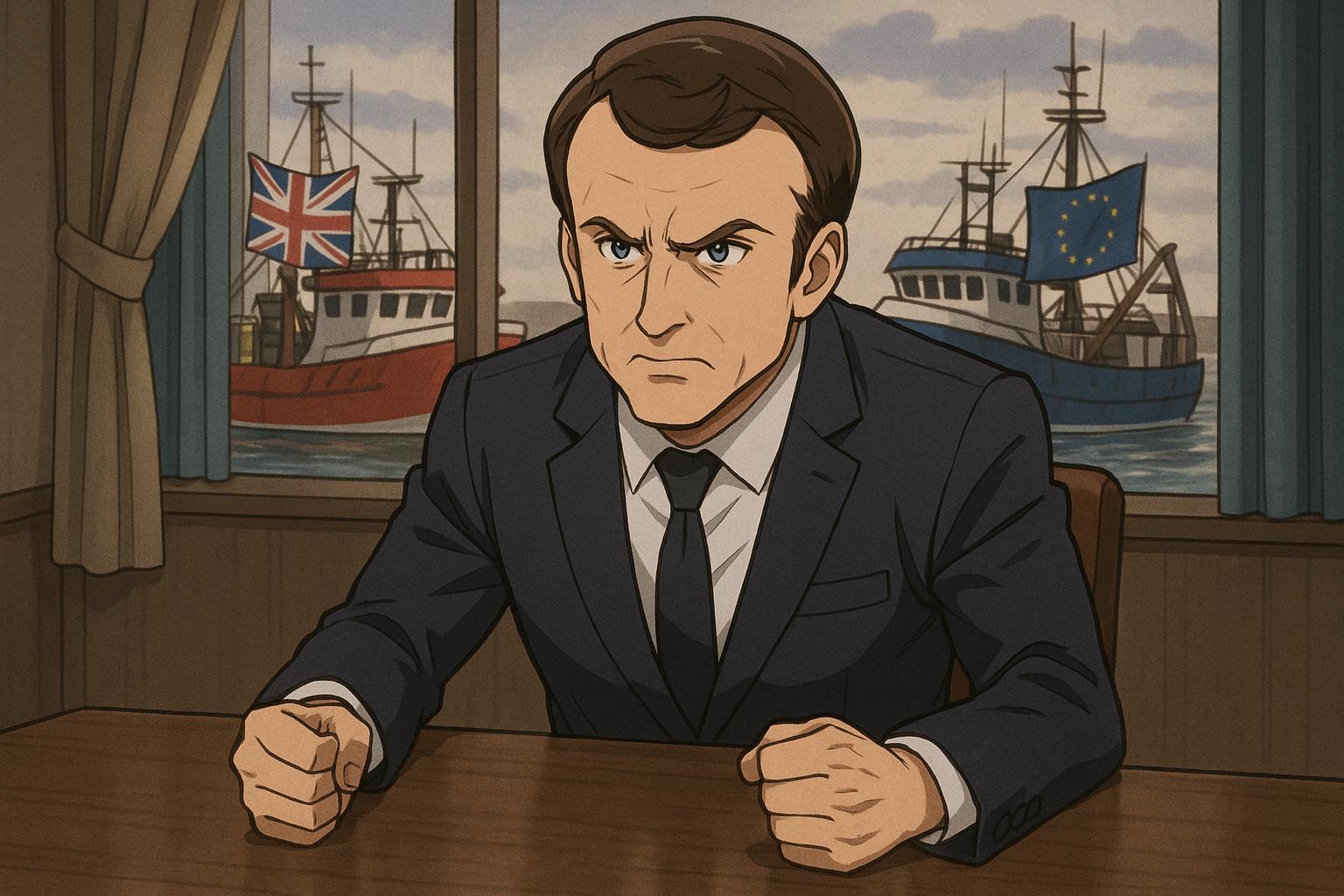In a significant turning point in negotiations over post-Brexit fishing rights, French President Emmanuel Macron reportedly faced a moment of considerable embarrassment as he was compelled to retract his demands during the final stages of talks. Initially adamant that any fishing agreement must be linked to a broader defence pact with the UK, delays and a lack of compromise led to what insiders described as a bitter five-day stalemate with former Brexit minister Lord Frost. Ultimately, Macron conceded to a deal that allowed mutual access for UK and EU fishing vessels until June 2026, a compromise that fell short of his request for a more binding four-year agreement.
The backdrop to this negotiation was fraught with tensions, as fishing rights had become emblematic of broader disagreements between the UK and EU post-Brexit. Macron's insistence on leveraging fishing rights to secure a defence deal had been particularly contentious, drawing sharp criticism from various EU leaders and raising questions about the wisdom of intertwining such distinct policy issues. The negotiations revealed significant fractures within the EU's approach to Brexit, especially regarding national interests versus collective agreements.
After facing considerable pushback and being fact-checked on inaccuracies regarding fishing licence allocations—allegations that up to 40% of applications submitted by French fishermen were rejected were ultimately debunked, with the true figure being closer to 4%—Macron found himself with limited options. This collapse of narrative surrounding entitlement led to what some viewed as a necessary retreat for the French president. The UK's firm commitment to adhere to the principles laid out in the Trade and Cooperation Agreement further constrained Macron's position, making a meaningful end to the impasse increasingly elusive.
With the current fishing arrangements set to expire in June 2026, fresh concerns about the potential for renewed discord linger. Analysts suggest that as Sir Keir Starmer prepares for his upcoming 'Great EU Reset' summit, discussions over fishing rights could once again surface as vital leverage in future negotiations, particularly as the UK government contemplates involving its defence firms in the EU’s substantial €150 billion defence fund.
In the face of strained relations, the idea of using fishing negotiations as a bargaining chip has led some political analysts to ponder the long-term implications for both the UK and France. Macron's strategic decisions reflect a delicate balancing act between national pride and the practicalities of international negotiation. As he steps away from previous hardline stances, there is a growing acknowledgment that ongoing dialogue might ultimately offer the best pathway to resolving disputes and ensuring cooperation in critical sectors.
The complexity of this issue extends beyond a single negotiation cycle, unveiling the intricate ties between political rhetoric and legislative action in a post-Brexit Europe. Moving forward, both sides must navigate a path that reconciles individual national interests with broader cooperative efforts, a task that may prove increasingly challenging in the weeks and months ahead.
Reference Map:
- Paragraph 1: 1
- Paragraph 2: 1
- Paragraph 3: 1
- Paragraph 4: 1
- Paragraph 5: 1
- Paragraph 6: 1, 2, 3, 4
- Paragraph 7: 1, 6, 7
Source: Noah Wire Services
